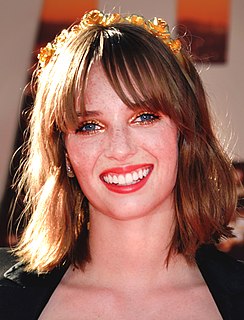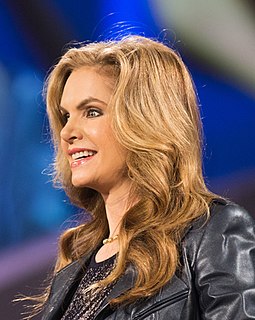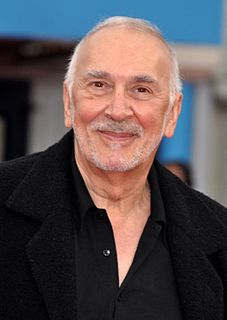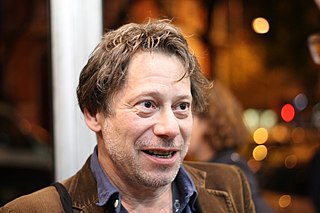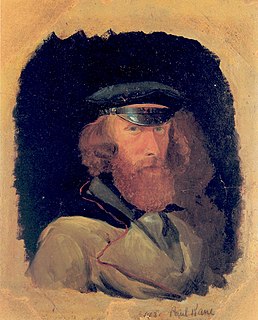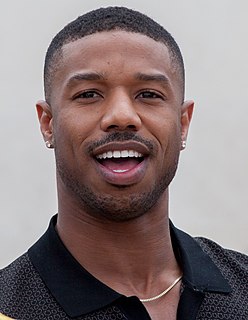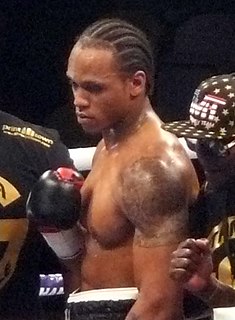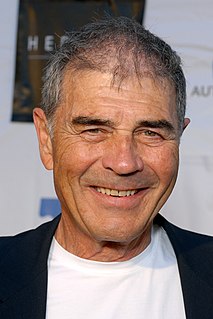A Quote by Maya Hawke
As an actor on a film, you have no control over the final product - your job is to make a director's vision come true. So, you need to have total faith in them and add your own creativity and opinions and energy, but you have to really give over responsibility, and sometimes that can feel terrifying.
Related Quotes
There are a lot of times that we feel like our hands are tied - 'I have no control over if I'm going to lose my job.' 'I have no control over if I'm going to be able to pay my bills.' You've got to realize that that's where your trust comes in. You have to trust God, and keep your hope, because your hope is what produces your faith.
In the film industry you never really know if all the various ingredients will come together - sometimes they do, and sometimes they don't. As an actor, you don't have much control over those things. It's a director's medium in that sense. All you can really do is minimise the risks of being involved in something that might not work and look for something that also suits you.
I think your text [script] is everything; it's what informs you; it's what gives you the given circumstances. Then you take that and you add your own creativity and your own spin on things and you make it personal. That's what makes that character and that text unique to you, when you personalize it. I think that's where your job as an actor comes in.
As soon as you start making a film that's expensive then the studio wants total control over all elements of it because they want to get all their money back. If you make a smaller film you can try a lot more things because you can have control over it and not just be a hired director. The lower the budget the more freedom you have.
I decide every day that I love Creativity enough to accept that Fear will always come with it. And I talk to Fear all the time, speaking to it with love and respect, saying to it: “I know that you are Fear, and that your job is to be afraid. And you do your job really well! I will never ask you to leave me alone or to be silent, because you have a right to speak your own voice, and I know that you will never leave me alone or be silent, anyhow. But I need you to understand that I will always choose Creativity over you.
I do have more directorial control over animation, because it's like trial and error: If something doesn't work, you can always go back and change certain things. Whereas in live action, every day is a challenge, and you have to make decisions on an hourly basis. So in live action I have more freedom as a director, but in animation, I have more control over the final product.
Cannes is a circus, so you have to have fun with it. Everything suddenly becomes funny. And the promotion of a movie - that's where you really need to be a good actor. You need to make journalists believe that what you're saying is just for them and you've never said it before, even when you're talking about the same film over and over again.
Independent film making is very collaborative. You feel like it's you, the director and other actors and you really feel like you have the final say. When you do the bigger films, the studio has to give the final thumbs up and they're usually not big on risk taking because they're trying to make money.
You never know when you're taking a job, ever... but you try to take good scripts. That's all you can do as an actor - take the best thing available. Even then, it's not [really] in your control. Certainly not in film and TV, because there are so many other elements. You just have to take control of your own performance.
All I've learned is that you need the studio system sometimes, if your budget is a certain size, and other films you can do independently. When I think of a studio, I generally think of distribution. Since I'm a director, I have a similar creative experience on every film I do, because I can control that. But then it's a different film, I think, as it reaches the public, depending on the way it's marketed. I don't know. I haven't learned much of anything. Sometimes you need them, sometimes you don't. Sometimes they want you, most of the time they don't.
